How to Restore the Energy Sector in a Way That We Can Not Just Survive, but Develop
If you think that the main problem is in the energy sector and the main thing is simply to “get through the winter,” then you have been misled by a contrasting shower of panicky statements and triumphant reports. First, “we will get through the winter without outages,” then “there will be outages in the winter until spring.”
If we do not change the approach to restoring the energy sector, weeks and months without electricity can last for years and depend on the weather and shelling. Because for the past three years we have been treating the energy system exclusively with the help of band-aids in the form of chaotic purchases of coal-fired generation equipment and forcing businesses to buy expensive imported goods.
How can we change the system so that we do not have to wait with fear for every winter and do not stick band-aids on our energy system worth hundreds of millions of dollars every year instead of effectively solving the problems? We need to stop spending huge amounts of money on repairs to frequent targets of attacks by the Russian Federation and stop trying to make all investments exclusively in state-owned enterprises. To begin the construction and development of a decentralized energy system that is resistant to missile attacks, we need to involve private business and communities.
This opportunity is provided for by European programs and approaches, but there is no algorithm for its implementation. And everyone who suffers solves their own problems.
Today's band-aids
The strategy for restoring electricity generation and our goal of "getting through the winter" is based on the following approaches today.
The "black hole" approach. This involves repairs and reconstruction of destroyed energy facilities. All of them have already been targeted, and there is no reason to expect that the Russian Federation will not attack the newly restored ones again and again. Back in the summer, Ukraine lost 90% of its thermal generation, and the Donbass Fuel and Energy Company's stations alone were subjected to 190 attacks. Their restoration has already cost about UAH 2.6 billion, and the company's annual repair costs can reach UAH 3.8 billion. The state-owned company, the public joint-stock company "Centrenergo", received UAH 1.5 billion from the budget back in July. With all this money, part of the thermal generation that was bombed last heating season was prepared for the heating season. It was these stations that the Russians have been shooting at since November.
The "abroad will help us" approach. In the Energy Support Fund for Ukraine, established in April 2022 at the initiative of the European Commissioner for Energy Kadri Simson, international donors have already spent more than a billion euros on the prompt restoration of damaged energy facilities. Until July of this year, this money was used to finance repairs and restoration of state-owned companies, after the statement of the President of Ukraine Volodymyr Zelensky about the “gigawatt”, the fund began to purchase gas turbines (which are unknown when they will be connected to the grid, unknown by whom they will be installed and unknown how they will work in the market).
The “rusty locks” approach. These are the government’s plans to develop nuclear energy. The point is that the idea is to use the profits of the state-owned enterprise "National Atomic Energy Generating Company "Energoatom" to build new nuclear units (which in reality are not so new). This is if the construction of reactors begins in principle, because due to constant corruption scandals, the company's chances of attracting the billions of dollars needed for this are approaching zero. It is worth noting that this is exactly the assessment of the Financial Times. At the same time, it is assumed that the state-owned enterprise "National Atomic Energy Generating Company "Energoatom" will spend money on buying concrete for the first few years. This is a simple and proven corruption scheme.
The "expensive pink castle on the water" approach. It is quite difficult to calmly comment on the government's intention to lease 250–350 MW of floating electricity generation from the Turkish company Karpowership. The planned cost of the lease is not disclosed, but we can get a general idea from Karpowership's contracts with other countries: $6 million per month for a 100-megawatt station for Ecuador, $20 million per month for each of three stations of 400 MW on average for South Africa. By the way, it will be even more expensive for us, taking into account insurance for war risks and not only these things. This is the most expensive electricity of all possible types. It is worth noting that we do not know the exact amount of rent and fuel for this expensive pink castle on the water, but, according to very rough calculations, for this money it would be possible to build at least 50 MW of biomass cogeneration plants, which could improve the electricity situation and provide heat to the community next year.
The “gigawatt from Zelenskyy” approach. Ukrainian President Volodymyr Zelenskyy spoke about decentralized electricity generation in his usual, PR-oriented tone: “We will build it by the end of the year.” As a result, some of it was brought by our donors, some was bought by state-owned companies and private business representatives. The fact that they brought and bought everything does not mean that it worked. As of today, only 60 MW have been installed in communities and no more than 150 MW by private business (which does this for its own consumption). Instead, 80% of the promised energy capacity remained in the “financed” status, that is, purchases and installation have not yet taken place. There is also a question about the equipment that international donors urgently supply to communities: it often does not meet local needs and capabilities, and arrives without the necessary additional equipment. As a result, expensive equipment does not generate anything, but stands in the rain and waits for connection to the network, facing the problem of a mobile power plant, which the state enterprise "National Atomic Energy Generating Company "Energoatom" received and was unable to connect.
In other words, the government's approach to solving complex issues is simply a chaotic application of band-aids to problem areas. This approach may allow us to stay afloat for some time, but not develop. After all, the economy also runs on electricity. It is not surprising that information is classified, and government communication is conducted in the format of "everything will be fine", and those who disagree are "spreading the psychological operation of the Russian Federation". At the same time, even in the last few days, when the population has not been turned off electricity, restrictions on business continue to operate, and the price for it is among the most expensive in Europe.
The only one who, in the current situation, is solving these problems is the Donbass Fuel and Energy Company. Their perseverance is worth learning from.
The fact is that, despite all the unwillingness of the Europeans to restore coal generation and the attitude of the Americans towards the owner, the company received help from both of them.
A “systemic” approach
As is known, solving the problem begins with acknowledging one’s own mistakes, although the government is currently stuck in a dead end of presentations and statements. Instead, communities, businesses and non-governmental organizations continue to search for algorithms for mutually beneficial cooperation that will make it possible to launch real projects. Opening the way for private business in partnership with communities not only provides the prospect of creating new power plants. It is worth noting that such projects are also an opportunity to start building clean renewable energy.
According to the estimates of our partners from the TNO research center (as well as the estimates of many other European reports), Ukraine’s potential in bioenergy exceeds the potential of any other country in the European Union. In addition, it is worth noting that with bioenergy alone we can provide up to 30% of our own energy needs. To do this, it is necessary to build not grandiose nuclear reactors, but small biomass cogeneration plants and biogas plants that can be quickly scaled up and integrated into local systems. And this is just one of the available technologies for decentralized energy generation.
Business and community partnerships can also open the way to using investment funds, in particular the Ukraine Facility, intended specifically for economic growth projects. Yes, there is less money there than is necessary to meet Ukraine’s needs for new energy generation. But their goal is not to solve all the problems, but to pave the way for private investments that can give the Ukrainian economy a real boost.
According to the World Bank Group, financing the reconstruction of the economy without attracting private capital is impossible in principle. Under current conditions, the assessment of Ukraine’s ability to attract money for reconstruction within the framework of the “green transition” is estimated at $172 billion, and subject to the implementation of systemic reforms, it is $412 billion. The difference speaks for itself.
All these sums are impressive, but the main obstacle to the realization of all possibilities in Ukraine remains stable habits. The fact is that the Government is trying to control everything and only increases the centralization of all processes and is counting on the launch of the Ukrainian Development Fund (UDF) under the auspices of the Black Rock company.
At the same time, at the local level, the short-sighted interests of clans often prevail over common sense and the interests of people. That is why business solves exclusively its own needs for providing itself with electricity, without taking into account the needs of communities.
The futility of such an approach to the development and restoration of the energy system should already be clear. As well as the futility of the Ukrainian Development Fund (UDF), which should start operating "six months after the end of the war."
The situation will not resolve itself
The key question is whether business, communities and financial institutions can come to an understanding and find a common denominator that will open the way to building small-scale decentralized generation (and not only that).
Each of them has its own capabilities and interests. Communities can provide land and support, in return for a stable supply of electricity. Businesses that will build new power plants will be able to receive financial incentives for themselves if they solve the problems of providing electricity to communities. Thus, international banks will be able to start a boom in new “green” energy generation, but they will have to move away from the usual protocols that are not adapted to military realities.
In energy, we can lay the foundation for a new approach to reconstruction, namely one that is based on trust and cooperation between different players. A foundation that will launch the process of creating an entire class of middle players in the electricity market, which will make it possible to permanently overcome dependence on a few large oligarchic players and state monopolists.
The most difficult thing is required of the state, namely to stop lying to itself and to us, to admit the fallacy of "band-aid approaches" and to fulfill its obligations in accordance with the requirements of European Union legislation. In particular, regarding the full and real independence of the energy regulator.
After all, the fact is that now the government controls everything and everyone, like a monkey with a banana that cannot be taken out of the jar.
Please select it with the mouse and press Ctrl+Enter or Submit a bug










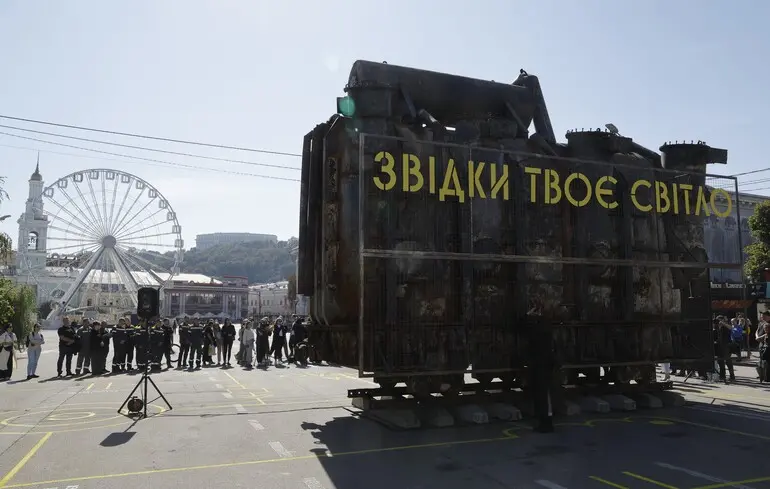

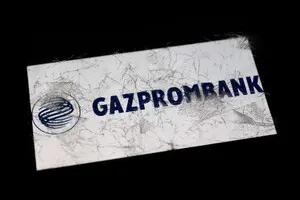
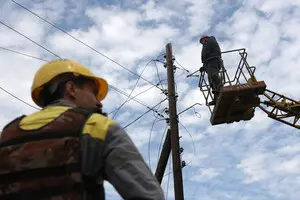
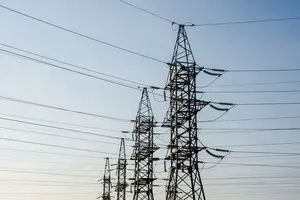

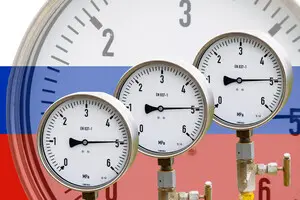
 Login with Google
Login with Google